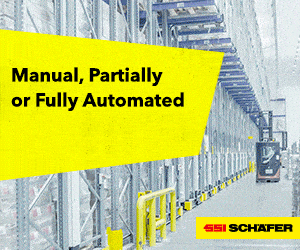Heads of the UK’s leading logistics trade associations are urging the next government to recognise the value the sector provides to the economy and appoint a dedicated minister for logistics with cross-departmental responsibilities.
Eleven of the UK’s leading logistics trade associations have cosigned a letter which was delivered to the leaders of the UK’s and devolved nations’ main political parties today, highlighting the role logistics can play in boosting growth and productivity, if backed by the right policies and a dedicated minister supported by a Cabinet Office structure to support delivery across Whitehall. The logistics sector underpins the economy and, according to the associations, generates £163 billion in Gross Value Added (GVA) and contributes significant tax revenue for the UK, including £5 billion from Fuel Duty and Vehicle Excise Duty alone.
“Achieving a policy environment that unleashes the potential for logistics to drive the economy would bring untold benefits,” says Phil Roe, President of Logistics UK, CILT Board Member and chair of the cross-industry group. “Our industry supports all households, businesses and public services and can play a larger role in supporting the UK’s economic recovery and growth for the future. Our member businesses stand ready to play their part, but their concerns need to be considered at the start of the decision-making process. A dedicated logistics minister working across Whitehall would give us the voice to shape plans and maximise the benefits which logistics can deliver.”
In addition to a dedicated Logistics Minister, the letter also calls for coordinated action on policy areas including planning and infrastructure; sustainability and decarbonisation; skills and the battle for talent; and growth and trade, all of which, according to the leaders of the UK’s leading logistics trade associations, are vital for efficient, green and safe logistics operations.
Phil Roe added: “As a sector, logistics has the ability to transform the way other industries operate, and could deliver up to £7.9 billion in productivity-led growth per year by 2030, according to research from Oxford Economics. To do this, our industry needs a focus from government, combined with radical planning reform, long-term infrastructure investment and a firm commitment to increase transport capacity nationwide.
“We need the next government to work with our sector on a sustainability and decarbonisation roadmap, to ensure our Net Zero goals can be achieved, backed by skills policies that will enable us to attract and retain the brightest and best minds. Our priority is to work closely with government to boost trade and protect the UK’s highly interconnected supply chain, for the benefit of both consumers and businesses, as we approach the next government’s term.
“The sector is united in its priorities,” concludes Mr Roe, “and irrespective of who wins the next election, logistics will have a fundamental role to play in achieving their and the UK’s priorities. The sector is keen to work with the next government, and the appointment of a dedicated minister is entirely appropriate for a sector that generates £163 billion in Gross Value Added (GVA) and employs over 8% of the UK workforce.”
The signatories of the letter are leaders of:
Richard Ballantyne OBE, Chief Executive, British Ports Association
Claire Bottle, Chief Executive, UK Warehousing Association
Geraint Evans, Chief Executive, UK Major Ports Group
Amanda Francis, Chief Executive, Association of International Courier & Express Services
Steve Parker, Director General, British International Freight Association
Phil Pluck, Chief Executive, Cold Chain Federation
Paul Sanders, Founder & Chair, Association of Pallet Networks
Maggie Simpson OBE, Director General, Rail Freight Group
Richard Smith, Managing Director, RHA
Ian Studd, Director General, British Association of Removers
David Wells OBE, Chief Executive, Logistics UK











